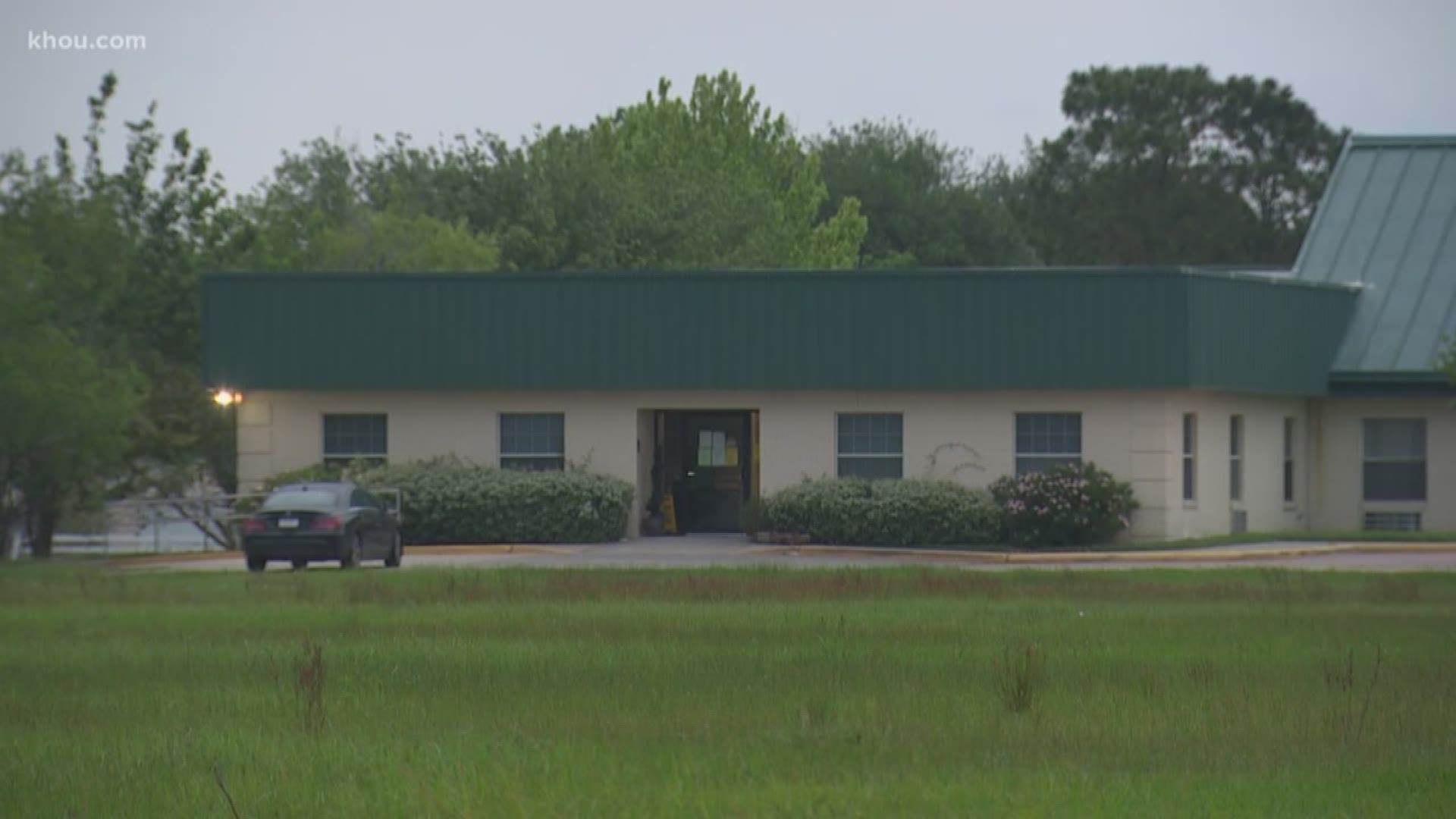TEXAS CITY, Texas — More than 80 people tested positive for COVID-19 at The Resort at Texas City nursing home, the Galveston County Health District announced Friday afternoon.
The health district said 83 residents and employees contracted the virus as of Friday. The health district, in partnership with UTMB, tested 146 people associated with the nursing home on Thursday. Some of those test results are still pending.
Dr. Phillip Keiser, the health authority for Galveston County, said they believe at least one employee contracted COVID-19 and brought it to work. It is unclear if that person or persons was showing or experiencing symptoms.
"I just view it as bad luck on their part," Dr. Keiser said. "There’s something different that happened here. I don’t know if we will ever know exactly what that was."
For families of the residents, the news comes as a shock.
Sam Quinn rushed to see his mother, 87-year-old Peggy Smith, at the nursing home on Friday morning, when staff called his sister, telling her Smith was likely in her final moments.
"I asked at the door, I asked twice while sitting in the room to make sure my mom doesn’t have coronavirus, only to be told my mom has coronavirus when I’m out in the parking lot leaving," Quinn said. "On one hand, I’m sad my mom is over there dying. My mom is my mom. You only get one of those. On the other hand, I’m mad that she got the coronavirus."
Dr. Keiser said it is "common practice" for employees at long-term care facilities such as this to work at other nursing homes. He said multiple Resort employees also worked at other facilities.
A resident tested positive for COVID-19 on March 28. Over the weekend and early this week, the health district was notified of 13 more positive cases.
"You look at the numbers that popped up today, it's shocking and we're very worried," Dr. Keise said. "One thing we're learning about this virus, there are a lot more asymptomatic cases out there than anyone ever dreamed of. It shouldn't be surprising this couldn't happen."
Residents at the facility are being quarantined to one area of the building. Staff and physicians are treating them and monitoring their symptoms. Keiser said they are in contact with local hospitals to alert them to that they could be seeing some of these residents if their symptoms worsen. Only a small number of people from the facility have been hospitalized.
Keiser said the facility is working with health officials to determine how the outbreak started.
Keiser has issued a public health order that puts restrictions on long-term care facilities, including nursing homes, in accordance with the Center for Disease Control and Prevention guidelines. Those include limiting visitors, ensuring that such facilities alert family members and putting signage on the front door letting the public know there’s been positive cases.
The facilities also won’t be allowed to take residents outside of the facility except for in emergencies or unless they need dialysis. Employees who work at a long-term care facility with a resident who tests positive are prohibited from working at other long-term care facilities.
Coronavirus symptoms
The symptoms of coronavirus can be similar to the flu or a bad cold. Symptoms include a fever, cough and shortness of breath, according to the Centers for Disease Control. Some patients also have nausea, headaches and stomach issues.
Most healthy people will have mild symptoms. A study of more than 72,000 patients by the Centers for Disease Control in China showed 80 percent of the cases there were mild.
But infections can cause pneumonia, severe acute respiratory syndrome, kidney failure and even death, according to the World Health Organization. Older people with underlying health conditions are most at risk for becoming seriously ill. However, U.S. experts are seeing a significant number of younger people being hospitalized, including some in ICU.
The CDC believes symptoms may appear anywhere from two to 14 days after being exposed.
Human coronaviruses are usually spread through...
- The air by coughing or sneezing
- Close personal contact, such as touching or shaking hands
- Touching an object or surface with the virus on it, then touching your mouth, nose or eyes before washing your hands.
Help stop the spread of coronavirus
- Stay home when you are sick.
- Eat and sleep separately from your family members
- Use different utensils and dishes
- Cover your cough or sneeze with your arm, not your hand.
- If you use a tissue, throw it in the trash.
- Follow social distancing
Lower your risk
- Wash your hands often with soap and water for at least 20 seconds. If soap and water are not available, use an alcohol-based hand sanitizer.
- Avoid touching your eyes, nose, and mouth with unwashed hands.
- Avoid close contact with people who are sick.
- Clean and disinfect frequently touched objects and surfaces.
- If you are 60 or over and have an underlying health condition such as cardiovascular disease, diabetes or respiratory illnesses like asthma or COPD, the World Health Organization advises you to try to avoid crowds or places where you might interact with people who are sick.
Get complete coverage of the coronavirus by texting 'FACTS' to 713-526-1111.

